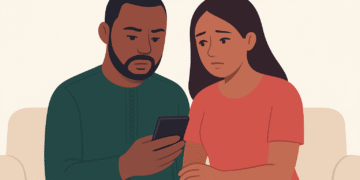By Aboagye — Social Worker, Mental Health Practitioner, and Advocate for Sustainable Development
Introduction: Between Two Worlds
Every Ghanaian living in the diaspora knows the unspoken pressure — “When are you building back home?” The question may come from relatives, friends, or even the gnawing voice in your head that echoes dreams of returning one day.
Yet, living and working in the UK comes with its own expectations: the cost of rent is steep, mortgage prices ever-rising, and the fear of ageing without owning property can be real.
So for a UK-based Ghanaian—rooted emotionally in Ghana but grounded practically in the UK—the question becomes:
Should I build a house in Ghana first, or focus on buying a home in the UK?
This isn’t just a financial decision. It’s a strategic life choice that intertwines identity, stability, legacy, and economics. Let’s unpack this honestly and arrive at the best possible option.
Part 1: Understanding What Each Option Represents
A. Building a House in Ghana: A Symbol of Legacy
Pros:
- Pride and fulfilment: Building in Ghana is often emotionally rewarding—it’s symbolic of success and returning home.
- Lower cost: You can build incrementally, based on your budget.
- Retirement planning: A home in Ghana offers long-term security for those planning to eventually return.
- Rental income: If built in a good location, it can serve as a guest house or rental property.
Cons:
- Dead capital: A house in Ghana may sit idle for years, not generating income unless rented out.
- Supervision problems: If you’re not physically present, mismanagement and shoddy construction are common.
- Currency depreciation: Investing your UK savings into cedi-based assets exposes you to foreign exchange risk.
- Land litigation: A very real risk if land ownership is not thoroughly verified.
B. Buying a House in the UK: A Foundation of Stability
Pros:
- Asset in a strong economy: UK real estate generally appreciates over time and is considered a stable, bankable asset.
- Mortgage opportunities: You can secure a loan and build equity instead of paying rent endlessly.
- Income potential: Owning a home in the UK gives access to rental markets and better leverage for future investments.
- Family security: If you have children or dependents in the UK, owning a home is a legacy and a safety net.
Cons:
- High entry cost: Property prices are steep, and getting on the ladder may take longer.
- Interest rates: UK mortgage interest rates have risen in recent years, affecting affordability.
- Maintenance and taxes: Owning property in the UK comes with council tax, insurance, and upkeep.
Part 2: The Economic and Strategic Analysis
1. Currency Strength
The British Pound remains significantly stronger than the Ghanaian Cedi. Investing in UK property means your capital is housed in a stable currency, while investing in Ghana exposes your savings to the volatility of the cedi. This affects resale value, maintenance costs, and long-term appreciation.
2. Asset Liquidity
A house in the UK is more liquid—you can remortgage, sell, or rent it more easily. A house in Ghana is harder to sell quickly, and even more difficult to use as leverage for loans or further investments.
3. Utility and Usage
If you live in the UK, buying a house there saves you from years of rent. A home in Ghana, unless used commercially, will likely be empty most of the year. So you’re building something you won’t live in anytime soon, while paying rent elsewhere.
4. Retirement Timing
If retirement is 10–20 years away, it is more strategic to invest in the UK now, build equity, and then use that asset to fund a future home in Ghana. You can later liquidate or refinance your UK home to build in Ghana with cash, avoiding the construction headaches and exchange rate issues.
Part 3: Emotional and Cultural Considerations
Of course, there is a cultural pull to have “a house back home.” For many, it’s a matter of pride, status, and roots. There’s nothing wrong with that. But it must not come at the cost of your present-day stability.
The danger lies in building a house you can’t monitor or use, while sacrificing the ability to own where you live. Many diasporans have sunken thousands of pounds into uncompleted homes in Ghana—some of which are still blocks and sand after 10 years.
Recommendation: Prioritise the UK First, Ghana Later (Strategically)
Based on financial logic, security, and long-term benefit:
Buy a home in the UK first. Then build a house in Ghana when you’re better established and ready.
This is not to say never build in Ghana—it’s to say build smartly and sustainably. Your future in Ghana can be better funded by the wealth and equity you accumulate from a UK-based property.
Final Thoughts: Home Is Both Here and There
You are not abandoning Ghana by choosing to buy in the UK first. You’re ensuring that when you do build in Ghana, you can do it with freedom, dignity, and little regret.
Be strategic. Be wise. Be grounded in your present, while honouring your future. In the words of the Akan proverb:
“Wo ko no wɔ fie a, w’ankɔ akɔsie abɔnten.”
(If you’ve not cooked at home, you don’t go out bragging about being a chef.)
Let your first “cooking” be done in the UK—solid, visible, stable. Ghana will always be home, but your current location demands its own kind of anchoring too.





























